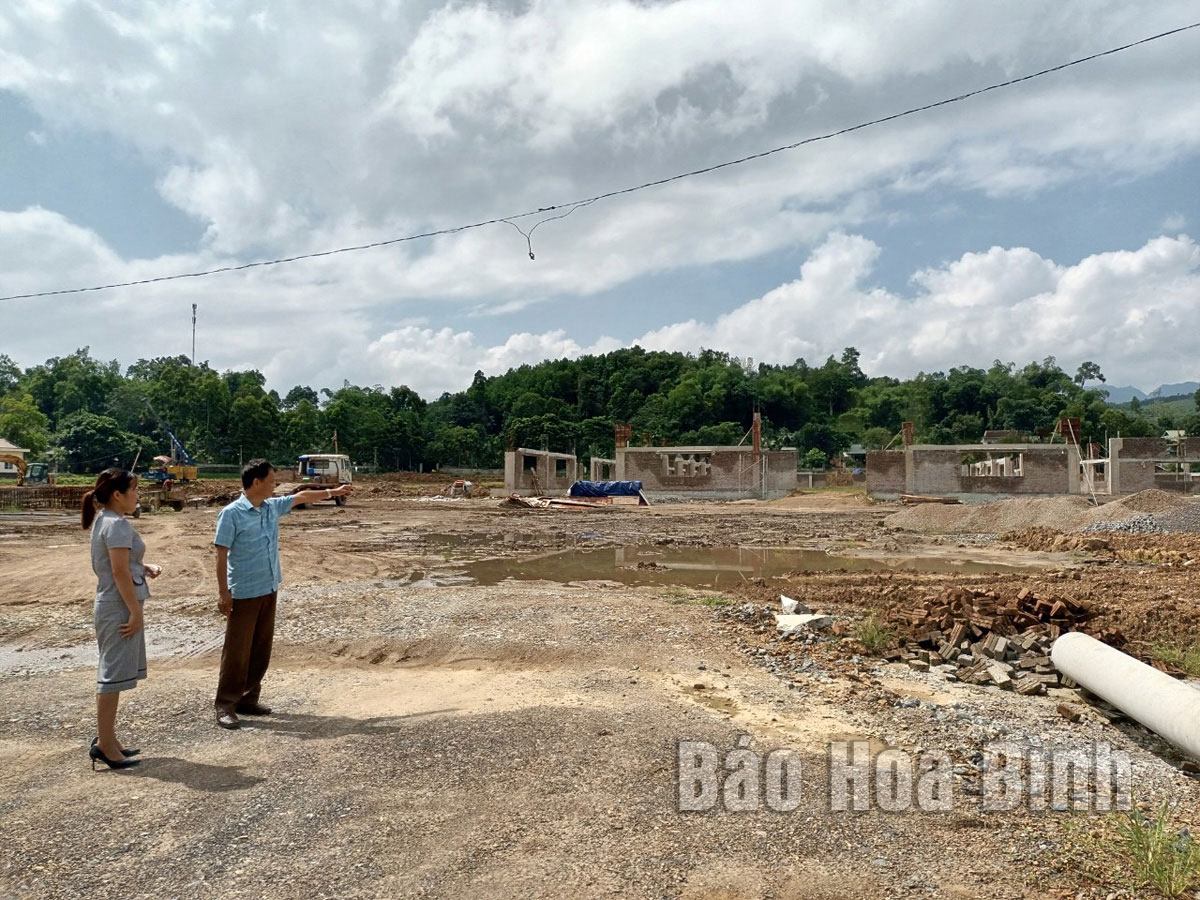
(HBO) – Urbanisation is a motivation for the socio-economic development and the improvement of the living conditions for locals, according to Nguyen Ngoc Diep, Secretary of the Party Committee of Lac Son district.
Thuong Coc commune attracts investment in industrial development, contributing to developing rural areas in association with the formation of Khang Vat residential area.
As a locality with the lowest urbanisation rate, Lac Son's only urban area is Vu Ban township. After being merged, the township has a population of over 9,500, with the urbanisation rate of 8,65%.
The district has made a development planning for Muong Vo township which covers the whole area of Nhan Nghia commune with about 1,400 hectares. At the same time, Lac Son has a number of rural areas that can be developed into urban areas such as Cho Oc in Thuong Coc commune, Cho Re in An Nghia commune, Nga Ba Xua in Xuat Hoa commune, Lam Hoa area in Vu Binh commune, and Cho Chieng in Tan Lap commune.
The district has faced many difficulties in urban development, including a large population and poor transport infrastructure system.
Amid the situation, the district Party Committee has issued a resolution on urban development, which sets a target of 15% in urbanisation rate in 2025 and 25% in 2030.
At the same time, the locality will apply comprehensive measures to boost socio-economic development, transform the economic, labour and employment structure towards increasing the rate of industry, service and reducing that of agriculture.
It will make a plan to urbanise Vu Ban, Muong Vo and Muong Khoi townships, while developing a new-style rural development planning in association with the formation of rural residential areas.
Alongside, the district will work to develop urban and rural infrastructure system, and mobilise resources to complete the power, water supply, park and entertainment system in urban areas.
The urbanisation will be implemented in parallel with the preservation of cultural values of the Muong ethnic minority people./.
The Standing Board of the Hoa Binh provincial Party Committee has agreed in principle on a proposal by the Standing Board of the Party Committee of Hoa Binh city to gather feedback on the city’s 1:2000 zoning plan, which forms part of its broader urban development strategy.
Hoa Binh province has made notable progress in public administration reform and digital government development, with the satisfaction index among citizens and businesses reaching over 84%, according to recent government evaluations.
Thanks to great efforts by local authorities in recent times, the governance and public administration performance of Mai Chau district has been significantly improved.
In the afternoon of June 6, the Party Committee, the People's Council, the People's Committee and the Fatherland Front of Lac Son district solemnly held a meeting to celebrate the 139th anniversary of the district's founding (1886–2025) and the 79th anniversary of the establishment of the district's Party Committee (1946–2025). There was the attendance of Mr. Bui Van Thang, the Vice Chairman of the Provincial People's Council; Mr. Quach Tat Liem, the Vice Chairman of the Provincial People's Committee; Ms. Dang Bich Ngoc, the Deputy Head of the National Assembly Delegation of the province; as well as the former leaders of the province and district through various periods, who are the natives of the district.
Implementing the Politburo’s Resolution No. 57-NQ/TW on breakthroughs in science – technology, innovation, and digital transformation is a golden opportunity for the northern mountainous province of Hoa Binh to renew growth model, improve competitive edge and shorten digital gap.
Resolution 57-NQ/TW, issued by the Politburo on December 22, 2024, identifies sci-tech, innovation, and digital transformation as strategic breakthroughs to build a developed and prosperous nation. In Hoa Binh province, this spirit is not just a slogan, it’s being put into action through concrete initiatives that form a "new development triangle”: digital citizenship, digital economy, and digital administration.



